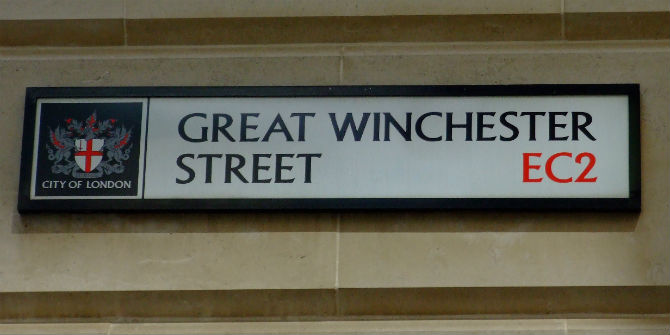EU law has constrained the City, argues Barnabas Reynolds, a partner at Shearman & Stearling. It has a chilling effect on business. Outside the Union, Britain will be able to either draft its own rules through an ‘enhanced equivalence’ model – or completely unshackle itself from the EU and adopt a free-market system whose simplicity would attract business. Either outcome would ensure the continued prosperity of the City.
To do well in financial services requires the right underpinnings to be in place. London has succeeded in getting the fundamentals right. Pragmatism in rule-making, clarity in the law, predictability and a fair system for dealing with infringements are all part of the mix. Institutions have also been left free to get on with things on the basis that free markets are a better guide to business than the regulators. This alchemy is rare. Were it not so, Mumbai and Jakarta would be financial centres and Singapore would be irrelevant.
Now that the UK is leaving the EU, some financial institutions are faced with what they see as a difficult choice: whether to continue with their EU-facing business in the UK or relocate some of it to another EU country. This, however, is the wrong way of looking at things and ignores the opportunities Brexit brings.
One of the advantages of the UK’s EU membership for financial services has been the expanded jurisdictional perimeter. Businesses can interact easily with EU clients while remaining regulated and based in the UK. It brings lower costs and convenience.
These gains have however come at a high cost. In return for pulling down some barriers, the EU has progressively taken control over financial services rule-making. The focus has switched from managing systemic, prudential and market risk to market-constricting goals and prescribing how business is done rather than seeking to secure outcomes. The UK, constrained by EU regulation, has been unable to control the tide, and so has done what it can within the damaging rules to ameliorate the overall effect.

Part of the problem arises because most member states with a seat at the drafting table have no financial market and may not understand the sector. But it is also a question of legal tradition. EU legal interpretation is purposive not literal and the wording of provisions is seen as an approximation to what is enacted, with the true force often being wider than what is written on the page. Such an approach is shunned in successful financial centres for its lack of certainty, which has a chilling effect on business.
Rather than an unwanted change, Brexit brings with it significant commercial advantages. There is a continuing need for a financial centre in the European timezone. But there is an even greater need for that centre to be a well-run free market.
Decoupling of some sort is key. The smallish slice of City business that is EU-facing is estimated to be between 13% and 20%. In fact, the truly cross-border business in law is less than that. It makes little sense for the remaining business in the City to be subject to EU-style regulation for the sake of this small portion.
There are lawful ways to work around any failure by the EU 27 to reach a deal favourable to the mutual future of the EU and the UK. Institutions should investigate the innovative structuring options available so as to avoid moving business to the EU merely for the continuity of service provision. There are opportunities that allow continuity without incurring meaningful cost.
Some people fear that to have an offshore system would worry EU clients and certain business may be lost because it would be harder or more expensive for them to access the markets. However, this is how clients were accustomed to doing business for centuries and, in any event, the underlying costs should be lower for them. Moving infrastructure to the remaining EU will be an expensive and ultimately wasteful diversion.
The choice faced by financial institutions is a happy one. The situation is simpler than often assumed. One option is to broadly maintain current access arrangements, but through a looser association between the UK and EU which respects UK sovereignty and in which the UK has autonomy in drafting its own rules. This ‘enhanced equivalence’ model is likely to be available as an option and I have just published a detailed legislative template showing how it can be done. It would allow the UK to move to an Anglo-Saxon common law basis for regulation and to focus the rules solely on key outcomes, not process. The UK would have autonomy over law-making and process so long as international standards were met. Institutions should engage early with the UK Government to assist in a re-focusing of regulations.
Alternatively, the UK could become a far more free market by unshackling itself completely from the EU and opting for the financial centre model to the benefit of mutual trade. This would allow UK institutions continued access to the EU markets from London under a much more free-market system. While access may be a bit less convenient, the gain in terms of regulatory simplification and competitiveness would more than offset that. Global businesses would continue using London for the certainty of its law, the availability of a range of complex, specialist services and the ready availability of capital. Indeed, such an outcome could well be the best, and certainly should not be regarded as triggering a difficult choice.
This post represents the views of the author and not those of the Brexit blog, nor the LSE. It first appeared on the Oxford Business Law Blog.
Barnabas Reynolds is a UK and EU regulatory lawyer who leads the practice at Shearman & Sterling. His books, A Blueprint for Brexit: The Future of Global Financial Services and Markets in the UK and A Template for Enhanced Equivalence: Creating a Lasting Relationship in Financial Services between the EU and the UK are published by the London think tank Politeia.








“Win win” proposal is a 99% trap
“To do well in financial services requires the right underpinnings to be in place. London has succeeded in getting the fundamentals right. Pragmatism in rule-making, clarity in the law, predictability and a fair system for dealing with infringements are all part of the mix. Institutions have also been left free to get on with things on the basis that free markets are a better guide to business than the regulators. ”
I think you forgot “bailouts by UK tax payer”, which is attractive to financial services but not so attractive to the UK tax payer. Do you have evidence that the regulations have harmed the British people, as opposed to harming the financial services companies based in London?
And you think the EU will be keen to hand over control of it’s financial underpinnings to what is now fast becoming a third world country? Dream on.
Mr Reynolds is in a much better position to know the real effects of Brexit upon the city, but I’m hard pressed to square his optimistic article with the reality that city jobs are already down and banks are actively planning to move large numbers of staff to EU countries
https://blogs.lse.ac.uk/brexit/2017/06/07/investment-banks-are-already-leaving-london-other-jobs-will-follow/
No doubt those departing the city will find other places to feather their already ample nests, but as far as the UK is concerned it’s goodbye to a lot of tax revenue. The UK was the financial center of the EU despite not being in the Euro. Imagine how much better we would have done had we been *in* the Euro. There are no good outcomes from Brexit, only damage limitation.
If we where in the EURO we would have never been in a position to print 700 billion GBP, nationalize and recapitalize the Banks (shares the Government will now sell to get a lot of the money back) and have spare cash to build 2 new aircraft carriers. Let’s be honest! How much of this was Greece able to do not having its own currency?! Do you really think the ECB would have helped the UK gladly with this kind of cash? Owning money to the Bank of England in this lovely fiat money world economy sounds far more attractive to me.
Booman, Booman Tribune, Sat, Dec3, 2016
If you want to challenge norms and blow up longstanding ways of doing things. It’s all the more important that you understand exactly why we have done things the way we have and what the implications are of changing them.
To paraphrase Mark Twain:
If you do not read this one is uninformed.
If you do read this one is mis-informed.